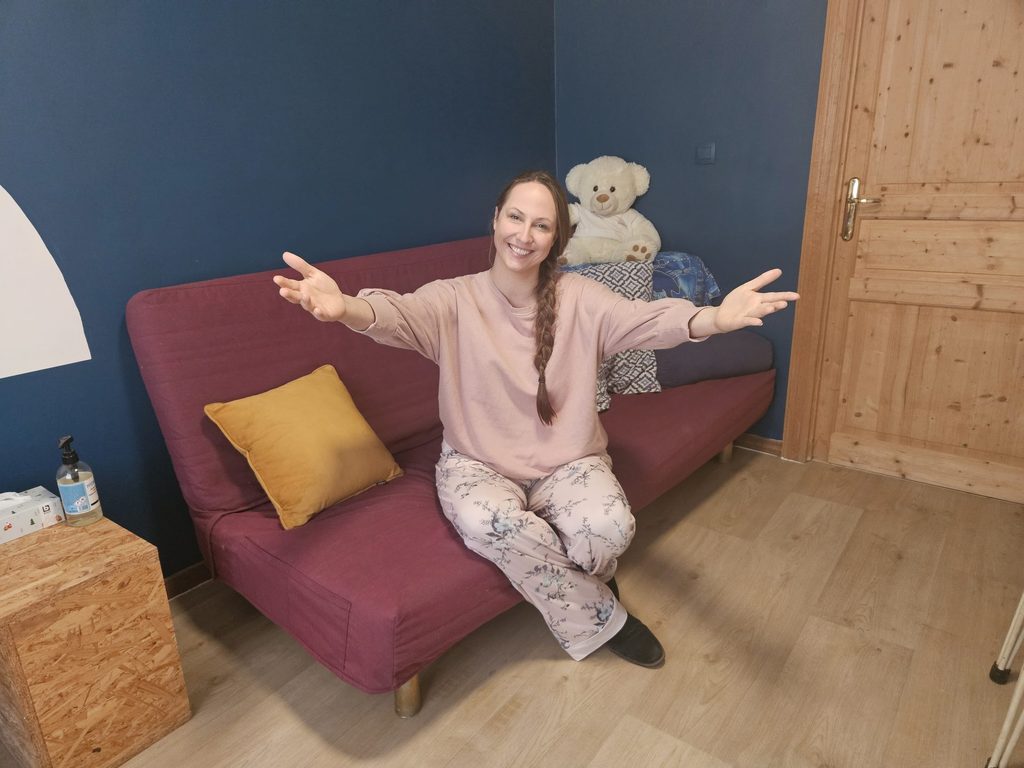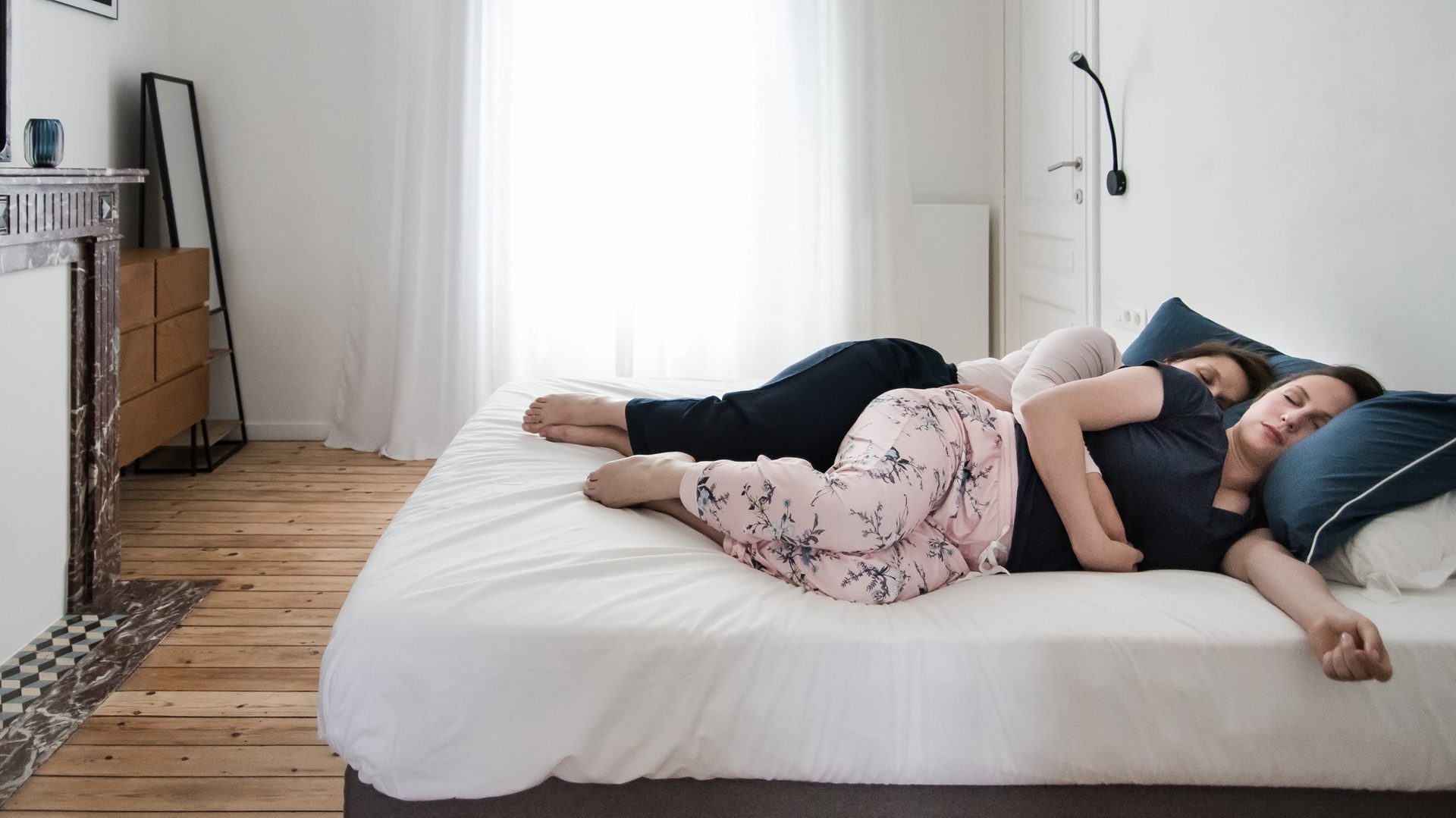✔ Cuddle therapy is gaining traction among Belgians and expatriates alike for its mental health benefits
✔ Cuddling specialists employ a thorough vetting process to ensure the integrity of each session
✔ A "Hug Catalogue": Choose your hug type for a tailored therapy experience in bilingual sessions
When the world seems bleak, or the loneliness seems too much to bear, nothing is more reassuring than a hug. An embrace, even platonic, floods the brain with chemicals that are proven to be good for our health. Sadly, many people do not have anyone to hug.
In Belgium, some of these people end up on the sofa of Madline Marbaix, a trained cuddle therapist, who provides a platonic and non-sexual hug service for Belgians and expats alike.
Cuddle therapy first started in the US less than 20 years ago. Large platonic hug sessions, dubbed 'cuddle parties', became popular across the country, with the founders creating an official certification programme for practitioners. From a relative novelty, cuddle therapy has grown to become a serious non-medical holistic service.
Marbaix runs CalinoBXL in the Brussels municipality of Schaerbeek, offering one-to-one cuddle sessions to her paying customers. Her cuddle sessions serve as a holistic approach to depression, trauma, aversion to touch, and loneliness. Expats are particularly represented. Some simply try cuddle therapy out of interest.
A reassuring hug
"People's reasons for coming to me are very broad," Marbaix told The Brussels Times. "There are people who are just curious and want to see what it is about. There are people who are having a low moment in their lives. For them, it is very important and it can be very helpful: it is really physiological how it works."
Clients are chosen very carefully. Potential clients must repeatedly acknowledge the platonic nature of the session. Marbaix vets potential clients through a phone call, written disclaimer, and a 30-minute interview prior to the session. She says that she has never had any inappropriate conduct during her sessions.

Credit: Madline Marbaix runs CalinoBXL. Dylan Carter/ The Brussels Times
Marbaix stresses that she is not a health practitioner, but that the positive effects of mutual embrace are well-documented. When embraced, our brain releases dopamine (the pleasure hormone), antidepressant serotonin, and sometimes oxytocin (the love hormone which helps lower blood pressure).
Recent studies support the positive health benefits of hugs. One Carnegie Mellon study suggested that physical touch protects humans from stress-induced sickness. Other studies show that other platonic touch can even reduce reactivity to stress and promote better sleep.
Comfort from trauma
While cuddle therapy is unlikely to cure any underlying health problems, and is no replacement to traditional forms of treatment, it appears to have a positive impact on many people, especially those suffering from trauma.
"Many people come to me with deep, varied traumas. It can be sexual abuse, either recent or during childhood. It can be that they have had difficult relationships. People that are very touch avoidant come to because they feel like they need or want to be touched, but they cannot because they are stressed about it," Marbaix said.
It serves as a safe space where clients, whom Marbaix dubs 'câliné(e)s', can receive holistic support and work on their traumas and insecurities.
Anecdotally, the cuddle sessions have had real world impact. One patient declared that the sessions had eased their eating disorder, while others noted a general improvement in their mood.
The need for cuddle therapy certainly poses questions about the role of platonic physical contact in Belgium. Most of Marbaix's clients are men, and for some, physical embrace remains taboo.
"It is a bit sad that my job has to exist. Of course, it would be great if we didn't have to need it, if we were not so distant," she said. "People don't have anyone else to hug. I even have people who have been married for so long that the physical intimacy is gone."
The Belgian cuddle therapist does not view the success of her service in material terms, but rather in the outcomes of her 'câliné(e)s'. Many of her clients are regulars and they can choose what type of embrace they wish to receive from her own 'hug catalogue'.

Credit: CalinoBXL
"I have noticed something with people who see me for the first time: they have one face when they arrive, and another when they leave because they are high on hormones. It is great because they are super relaxed," she glowed.
Related News
- Loneliness among elderly people in Western Europe rises most in Belgium
- Belgian performance artist promotes human contact in public
- Horse therapy now provided in specialised centres around Belgium
Over the course of sessions, she says that some clients go from being almost entirely adverse to touch to willingly snuggling up to her, a positive result and testimony to the benefit of the service, she noted.
Beyond her one-to-one sessions, Marbaix offers a series of services such as complimentary hug workshops, which place an emphasis on the nature of consent, as well as services for people with disabilities. Most of her events are fully accessible to those with reduced mobility and are bilingual, accommodating both French and English speakers.
More information about upcoming group hug workshops or one-to-one sessions can be found on the CalinoBXL website.

